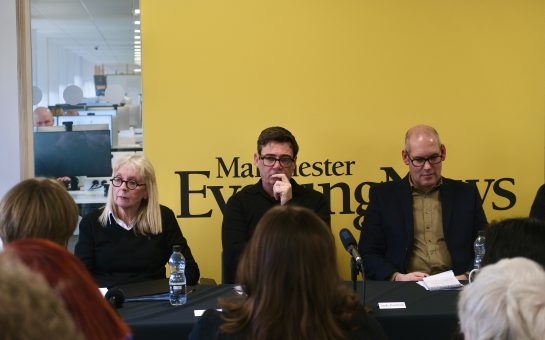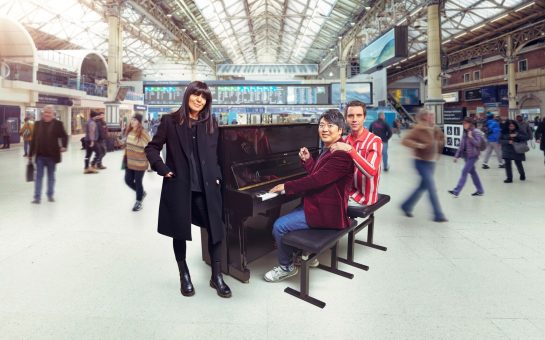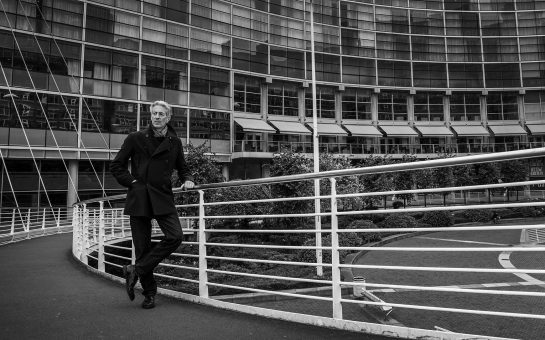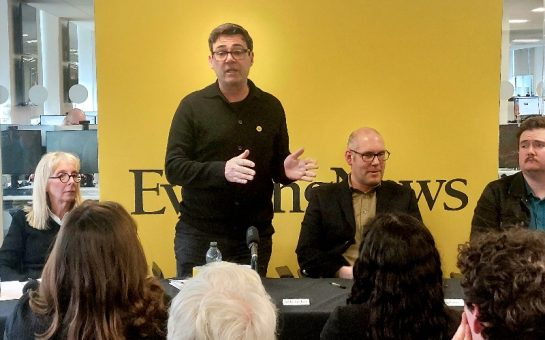Curiosity is the key to living a stress-free life, a Manchester arts centre has claimed as their presence and values have been championed in the field of creativity.
Perhaps the single largest contributing factor of the Martin Harris Centre is the quality of their values they have held dear as much now as when it opened ten years ago.
Of course, the centre wasn’t around when actress and writer Meera Syal studied in Manchester.
But the values so crucial to her burgeoning share of originality, expressive creativity, and impressive diversity as a presence on television screens since the mid-1990s were just as present in a city not necessarily renowned for its cultural exports.
Since October 21 2003, the Martin Harris Centre has encouraged artistic growth across the city of Manchester. Maybe even more significant than that, however, is the role it has had in providing fair access to those with the talent and drive to succeed, in spite of finding themselves too out of pocket to attend a world class university.
This week, Syal was able to see the centre’s success for herself when she returned to the city.
Professor Sir Martin Harris CBE, former vice-chancellor of the Victoria University in Manchester and a man who has proved instrumental in the provision of equal opportunities and artistic encouragement in the city, secured vital funding for the development of the centre.
“The vision was that this city deserved a world class university that accepts all based on merit alone,” he said.
“From the very beginning our colleagues across the university had the view to see that vision fulfilled.
“Universities are not just about excellent research and academic work, vital though that is. Outreach is something a university must do if it is to fulfil the moral obligations placed on it.
“Admission on merit alone is something this university has always excelled at and it seems to be getting even better.
“There are all kinds of ways to encourage potential and it is the roll of this university to ensure that people are encouraged and helped to a place where that potential can be reached.”
This is a sentiment echoed by Syal.
“Coming to Manchester was a massive deal in lots of ways,” she said.
“I had to bridge a lot of boundaries to get here, and even when I got here I was the only woman of colour in the arts department. There were lots of Asians about, but they were all doing science. I was always the only one.”
Yet she looks back on her time fondly.
She said: “I had four really happy years here. Manchester was so important to me when I discovered I wanted to be an actor; kind of a sliding doors moment. I thought there was nothing out there for a girl who looked like me.”
For Sir Martin and Syal the arts have proved invaluable and truly character defining.
As a student Syal received a double first in English literature and Drama, winning the National Student Drama Award and the Edinburgh Scottish Circle Critics’ Award for her one-woman show, One of Us.
As an actress she has starred in countless TV performances, as well as taking on stage and film roles, gaining another 11 national awards, before going on to write two novels (adapting both for the screen, with a third due next year), screen-plays, stage-plays, and just a few television series.
“God knows why I chose drama. Perhaps part of me wanted to communicate because I was the odd one out, and telling stories helped me bridge the gap between cultures,” she said.
As for Sir Martin, the tenth-anniversary of his eponymous centre proved quite as personal as you might expect.
He said: “This is a special day for a part of the university that it will not surprise you to hear I am very fond of and still very interested in.
“We almost certainly have more students from disadvantaged backgrounds than Oxford, London, and Cambridge put together, and that is something I am extremely proud of.”
In austerity Britain, the arts are suffering. There’s no feasible way of denying this harsh reality, and such a troubling development cast a shadow over the auspicious evening and the very future of what the centre stands for.
“Drama is being sidelined pretty insidiously and for a country which has produced some of the best actors in the world, it’s pretty shameful really,” Meera said.
“Acting opens up so many other things for people. Empathising and other skills are so important throughout your life.
“When times are bad we need the arts to understand what we are feeling. We need to see ourselves reflected. It’s a basic human need, and the theatre is doing pretty well in giving it to us.”
Taking a different tack, Sir Martin sought to sway the intransigents and comfort the converted in a display of honesty that showed true insight.
“There is a theory that some disciplines are less valuable in a strange, never defined way. I want to put it to you that this is a hypothesis that has no support in the real world whatsoever,” he said.
“Take no notice of those who say that unless something is immediately vocational it is not worthy. The things we study here are key to any university.”
And so the arts struggle on. Their future may be uncertain, but ‘struggle’ is certainly something they’ve never had to do in Manchester. Growing up in a Midlands mining-town, Meera had an epiphany worthy of D.H. Lawrence when she arrived in Manchester.
She said: “For someone like me, growing up in a small mining town, you didn’t have any access to the arts.”
How very different things were when she left: “The department encouraged bright vision, and we were propelled out there with confidence in our abilities. None of us left wanting to be a middle manager at the BBC,” she added.
“I tell my kids ‘do what you love, because you don’t want to wake up in 40 years hating it,’” – a powerful endorsement of the arts, if ever one was needed.
According to Elizabeth Gaskell, Manchester is the devil’s nest. “How cold and harsh it is here,” she wrote. “Everywhere there is conflict and unkindness. I think God has forsaken this place. I believe I have seen hell and it’s white, it’s snow-white.”
In this city of allegedly unfeeling industrial growth and cruel urban existence, the Martin Harris Centre provides a beacon of culture that attracts even the most unlikely students and propels them to greatness.
In a season of celebration for this centre a whole host of events are taking place, from conversations with writers Jeanette Winterson and A. L. Kennedy, to concerts with the Manchester University Music Society Symphony Orchestra and Big Band, to an autumn showcase of drama from the resident society, the centre continues its illustrious legacy for a new student cohort.
Let us hope it proves as inspirational as it has up to now. Further, let us hope it survives to make Manchester a truly magnificent place to be.
University of Manchester president and vice-chancellor, Professor Dame Nancy Rothwell DBE, said: “For those who say that the arts aren’t as important as they used to be, neither myself nor Martin will hear any of it.”
Image courtesy of The F Word via Youtube, with thanks.
For more on this story and many others, follow Mancunian Matters on Twitter and Facebook.



